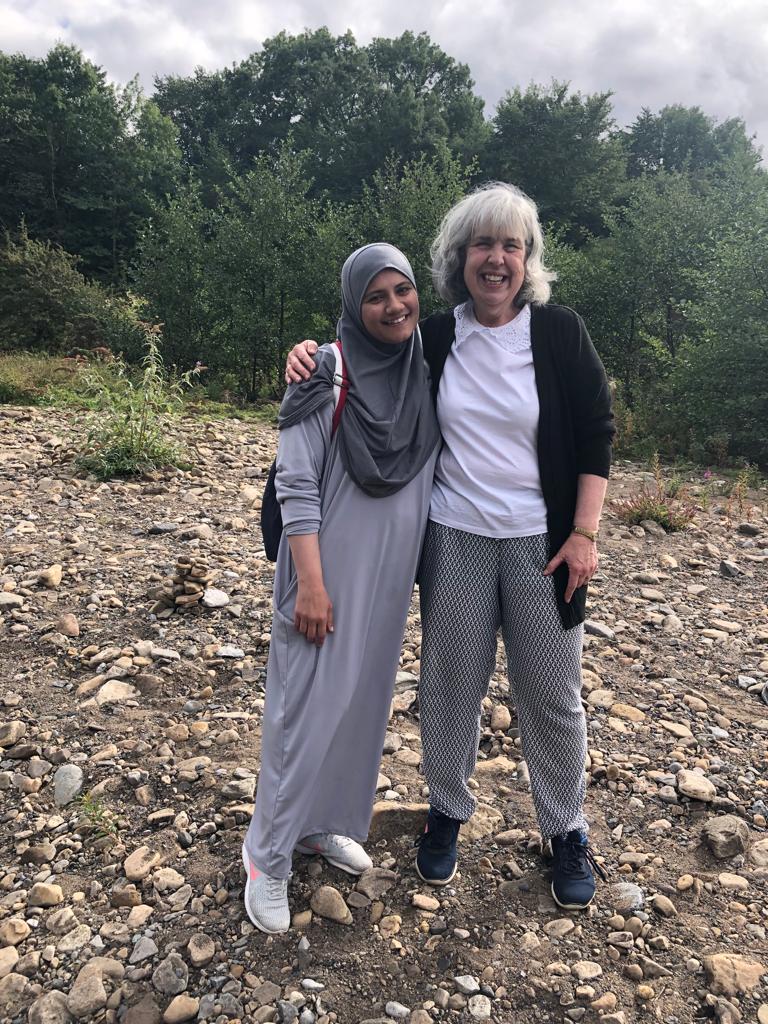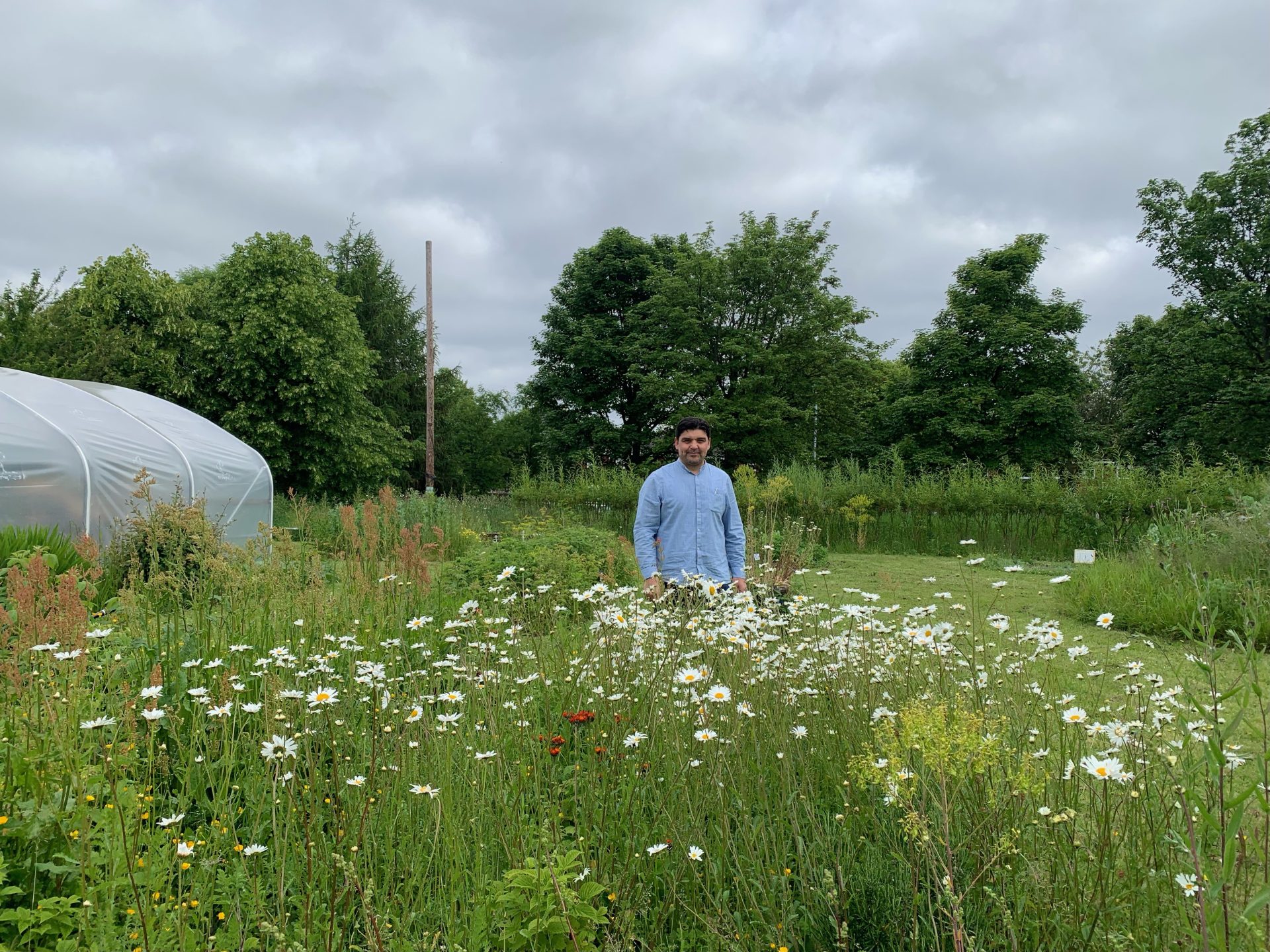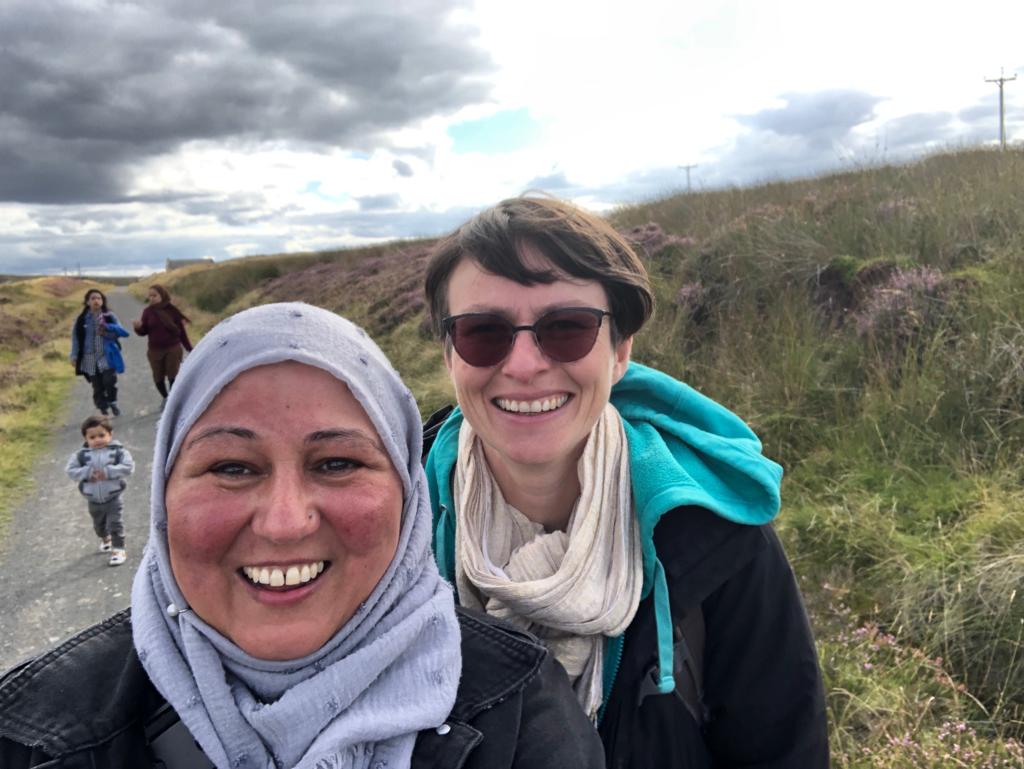News
Caretakers of the Earth
Caretakers of the Earth
2 July 2023
“If you knew that the world was to end tomorrow,
you should still plant the sapling in your hand.”
Prophet Muhammad
Over the last two years, communities from the North Pennines and Tyneside have been getting together, sharing experiences, and finding commonalities, as part of our work towards the North Pennines as a landscape for everyone. Farmers from Sinderhope hosted a visit on their farms by members of Gateshead’s Turkish community and Frosterley Women’s Institute have been sharing hospitality with the Suffrage Sisters, a women’s support group in Newcastle.
As we share and learn about each other’s lives, we have noticed, including in ourselves, a wish to learn more about Islam and Muslim people’s lives. As a staff team we know people celebrate the two Islamic holidays, Eid al-Fitr and Eid al-Adha, in the North Pennines but we know little about these festivals. We also know little about the significance of nature within Islam and different Muslim cultures.
From 28 June to 2 July Muslim people around the world are celebrating Eid al-Adha, marking the culmination of the annual pilgrimage to Mecca and honouring the sacrifice of Ibrahim. We asked our Tyneside friends Hakan Akarli and Taj Khan to chat with Scarlet, one of our community engagement team, about Eid, nature connection and Islam, and our North Pennines friends Linda Brewin and Shane Harris to respond.
Scarlet: Hakan, you and I got to know each other because you wanted to learn more about farming and conservation in the UK. We spent a day with two local farmers, Robert Phillipson and Nick Howard in the Allen Valleys in the North Pennines. I would love to hear more about how your love for nature is connected with your faith.
Hakan: When I go for a walk in nature, the sounds of the birds I hear, the dance of the trees with the wind, the sound of ocean waves hitting the shore, seeing sheep and lambs eating in the fields, feeling the earth while walking barefoot, lying on the bright green grass, or climbing to the top of a mountain to see the view – all of these experiences remind me of both the Qur’an and nature.
There are thousands of words in the Qur’an verses about nature: mountains, seas, many different animals, clouds, rain, wind. Nature not only plays an important role in my life by providing physical food and beautiful pleasure, but it also deepens my spiritual connection and understanding of the divine order.
When teaching my students about the importance Islam places on nature, I would always teach them this Hadith: Prophet Muhammad says, “If you knew that the world was to end tomorrow, you should still plant the sapling in your hand.”
Muslims believe that Prophet Adam was made from soil. We come from earth and to earth we will return. We are physically a part of nature, and understanding, protecting, benefiting from, and living in harmony with nature is a responsibility given to humans. This given nature is a trust given to us, and we must protect and care for this trust.

Scarlet: How does this happen in practice?
Hakan: The idea of “khalifa,” or stewardship, is a basic principle in Islam that suggests humans are caretakers of the Earth. Prophet Muhammad is quoted as saying, “The world is green and beautiful, and Allah has appointed you his stewards over it” (Sahih Muslim). This idea means a responsibility to protect and keep the natural world, which resonates deeply with me.
The Prophet instituted practices such as protection and sanctuary zones to preserve resources and protect certain areas of land and water. This, in my view, is similar to the concept of protected areas in modern conservation biology.
However, I must acknowledge that the interpretation and application of these teachings can vary widely among Muslims. Islam is diverse and people’s beliefs and practices can be influenced by numerous factors.
Scarlet: Taj, I know you have been trying to make changes at your mosque. How is that going?
Taj: For years I’ve tried to get the mosque to see the pollution of plastic and how it’s affecting our planet. It breaks my heart every Ramadan when they use plastic bottles. Some people have still got a lot to learn about how to preserve and look after the environment. And I can honestly say that it’s either ignorance or there’s not enough knowledge and awareness and the disconnection of living in this concrete jungle. I think mosques have huge part to play.

Scarlet: Here in the North Pennines, we notice families and groups coming and celebrating Eid in popular spots. Hakan, is being in nature an important part of Eid celebrations?
Hakan: During Eid al-Adha, spending time in nature is not necessary, but it is wonderful if we can. Celebrating Eid in nature makes the celebrations unforgettable because nature is special for Muslims. We call it the “mosque of the Earth.” Just like we take off our shoes and try to keep the inside clean when we go into a mosque, we should show the same care when we are in nature.
Taj and Hakan shared a lot more about the significance of Eid al-Adha. You can read more about this here.
Scarlet: Taj, I remember going for a walk near Muggleswick with you and Joyce and seeing how familiar things to me were so unfamiliar to you. And I know that visiting the countryside, whether for celebrations or a day out is not something you were able to do growing up. You talked to us before about not knowing if you would be welcome in the countryside. Are there other reasons this didn’t happen.?
Taj: My father came from a beautiful green country where they not only grew cattle to have good meat, but they also grew vegetables, every single ingredient that they would cook was grown in the fields around where they lived. But my father and many other people came here as migrants. They were put into factories and only saw the part of England that was like a concrete jungle. This is a huge contributing factor to how people don’t learn about the countryside here and what the countryside has got to offer. It’s really sad. I wasn’t taught. I would love to learn more and visit more.
There is a verse about a bee in the Quran. The essence of it is how important bees are for human life to exist. When I look at nature I see it being the grand design of creator, my God. And that he has created nature in a way that it benefits everybody; humans, animals, little creatures that our eyes can’t see. So it’s there for everyone to benefit from. I don’t appreciate when people don’t respect nature. I can’t understand it.
Nature plays a huge and important part in every aspect of my life. I can’t not see it and not love it and appreciate it and wonder what else is there to see.

Scarlet: Linda, you and the Frosterley Women’s Institute spent time with Taj, both on a visit to her flat for food, on a visit to the mosque and also hosting her and others for afternoon tea in Frosterley Village Hall. Reading these interviews what stood out for you?
Linda: The strong beliefs and faith that both Taj and Hakan have really stands out. Some key words that I have written down are Love, Sharing, Caring, Connection and Preservation. Both Taj and Hakan have a strong connection with nature linked to their faith. They realise that humans are the caretakers of the Earth and how important it is to preserve and look after the resources and the environment for the future. I think that people of all faiths could learn from this strong belief and together take on the responsibility to protect our world.
Scarlet: Shane, as someone committed to nature conservation and a North Pennines AONB resident, what stands out for you listening to Hakan and Taj speak?
Shane: Hearing Taj struggle with combatting single use plastics within her mosque, and the challenges she has convincing people that it’s something that they should change, reminds me that regardless of background, faith, or no faith we all ‘share these issues’ and need to come together to address them.
I am also heartened to hear Hakan speak about the concept of ‘khalifa’ (stewardship) within Islam and the belief that we are physically part of nature and that living in harmony with the natural world is a responsibility which we all share. This very much reflects my own world view, despite my atheistic leanings. We have much common ground.
Thank you all so much for your time and energy in talking with us.
Hakan Akarli is an active part of the community in Gateshead. He works at the Comfrey Project, a growing project for people in the asylum system, and is part of a team of Community Bridge Builders. Taj Khan is a founder of the Suffrage Sisters, a diverse, and predominantly Muslim, women’s support group, and an active member of Newcastle Central Mosque. Linda Brewin is a member of Frosterley Women’s Institute and part of the Frosterley Village Hall Committee. Shane Harris is a Weardale resident and the Responsible Tourism Lead for the North Pennines AONB Partnership.

Read part two

Taj Khan and Hakan Akarli tell us more about Eid al-Adha







